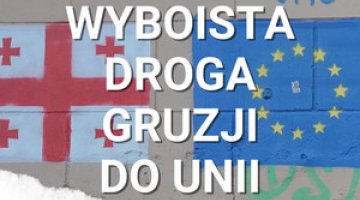The Georgian Dream takes total control
The runoff of the parliamentary election in Georgia took place on 30 October. Mainly representatives of the Georgian Dream and the opposition United National Movement competed in the fifty single-seat constituencies. The Georgian Dream, a party controlled by the oligarch Bidzina Ivanishvili (who formally does not hold any function in the party) was the unquestionable winner of both the first and the second rounds; it will have a total of 115 seats and a constitutional majority. The United National Movement (27 seats) and the pro-Russian Alliance of Patriots of Georgia (6 seats) also made it into parliament.
The opposition reported numerous reservations regarding the way the election was conducted (for example, incidents involving the use of violence against opposition activists during the campaign and against voters on the day of the election, irregularities at the time of vote counting, etc.). However, the OSCE observation mission concluded that the election met democratic standards. No Georgian political force protested against the election results, either.
Commentary
- The Georgian Dream’s sweeping victory is so much not an effect of the Georgian public’s support for the party’s manifesto, but more a symptom of their fear of the destabilisation of the internal situation, which would have been likely had the United National Movement, Mikheil Saakashvili’s grouping, regained power. The election has laid bare the crisis into which the pro-Western opposition has plunged. The United National Movement remains the strongest opposition party, but it must face a leadership problem. The conflict between Saakashvili’s people (Saakashvili himself is currently in Ukraine but still has strong influence in Georgia) and the domestic leaders who want to marginalise him will get worse in the immediate future. The decomposition of the other two pro-Western parties, the Free Democrats and the Republican Party, is also an effect of the lost election. This situation may adversely affect Tbilisi’s pro-Western policy as both of these groupings were members of the previous government coalition and had a significant impact on foreign policy.
- There is a risk that the Georgian Dream’s monopoly on power will make the government system and the decision-making mechanism even less transparent than was already observed during its first term (the party is controlled from the back seat by Ivanishvili, while the other Georgian Dream politicians are lacking charisma and self-reliance). Stagnation in the reform process, nepotism, clientelism and the return of corruption also seem to be serious threats. The deepening torpor posed may further ignite the socio-political conflicts. As regards domestic issues, the Georgian Dream will focus on administering the country and a cautious continuation of the reforms. The main problem it will need to face is the condition of the economy and the lack of prospects for improving people’s financial situation. As regards foreign policy, the party has declared it will continue the pro-Western policy, but it is placing a strong emphasis on the need to build appropriate relations with Russia.
- To consolidate all power, the Georgian Dream needs to have its own president. Ivanishvili has on many occasions criticised President Giorgi Margvelashvili, who won the election owing to his party’s support but nevertheless attempted to conduct an independent policy. The Georgian Dream will most likely put forward a more submissive candidate in the election next year. An announcement has also been made that the constitution will be amended, for example the competences of the president will be reduced, and the president will be elected by parliament.





